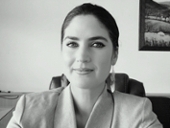Redeeming Capitalism: IGE Hosts Webinar on the Current Economy’s State

On May 26, Dr. Kenneth Barnes joined Executive Director of the Institute for Global Engagement, Lee Bratcher, for a free webinar event hosted by Dallas Baptist University. Dr. Barnes, inaugural Dean of the Marketplace Institute at Ridley College in Melbourne, Australia, led a discussion on the economics of the current pandemic and the theology of work.
The author of the book Redeeming Capitalism, Dr. Barnes has served as a senior international executive for a variety of companies, as a bi-vocational pastor in the U.S. and U.K. as a dual citizen, and as a chaplain and mentor to international graduate students at Oxford University.
"In the early days of capitalism, Adam Smith presumed that it's not from the benevolence of the butcher, the baker, and the brewer that we get our dinner," Barnes explained.
"It's self-interest. Self-interest--self-love--is presumed in the double love command: 'Thou shall love the Lord thy God and your neighbor as yourself.' But selfishness is when you seek your self-interest at the expense of others."
This selfishness, Dr. Barnes said, is the perversion of the capitalism we have today for one reason only: we have lost the moral compass of our Judeo-Christian roots. He emphasized that we need a capitalism that is fair and works for everybody; not equality of wealth, not socialism, but a redemption of the current economy.
"I don't have a book called Replacing Capitalism" he shared. "It's called Redeeming Capitalism. We must ensure that the system is fair."
Bratcher, the webinar's moderator, remarked how COVID-19 has taken an emotional, physiological, and economic toll on people during lockdowns in the midst of the pandemic: "The CDC is looking at it from a public health perspective, and most economists and people on Wall Street are looking at it from an economic perspective. Very few people have this world view that allows you to see with peripheral vision, with eyes on the back of your head on all of these issues, and they are not easy things to tackle."
Nonetheless, Dr. Barnes explained, they are issues that need to be addressed with both truth and faith. These two elements, however, are often lacking in today's world.
"We live in a post-truth culture because we live in a post-faith culture," Dr. Barnes said. "People simply don't have faith anymore in things beyond themselves. And that's a tragedy because we need to have faith, especially for any economic system to work and for any society to work.
Continuing, he stated, "It's ironic that we put faith in God by placing 'In God we Trust' on money, because, in fact, people trust in greed. We ultimately know that all faith must emanate from faith in a higher power we must have faith that our existence goes beyond our material existence."
Nowadays, as Dr. Barnes puts it, we live in a hyper-materialistic world where people do not look beyond their immediate carnal pleasure. This affects the entirety of one's life--including their finances.
"Hyper-materialism is why our economic system is completely out of whack," Dr. Barnes shared. "It's why people don't save for the future, why people get into debt, and why people self-medicate with drugs and alcohol. We have lost the notion of eternity. That's why we must bring faith back in, because if we don't have an eternal perspective, we are going to end up in a situation where it's just dog-eat-dog capitalism."
Faith Myers was a member of University Communications at Dallas Baptist University.





